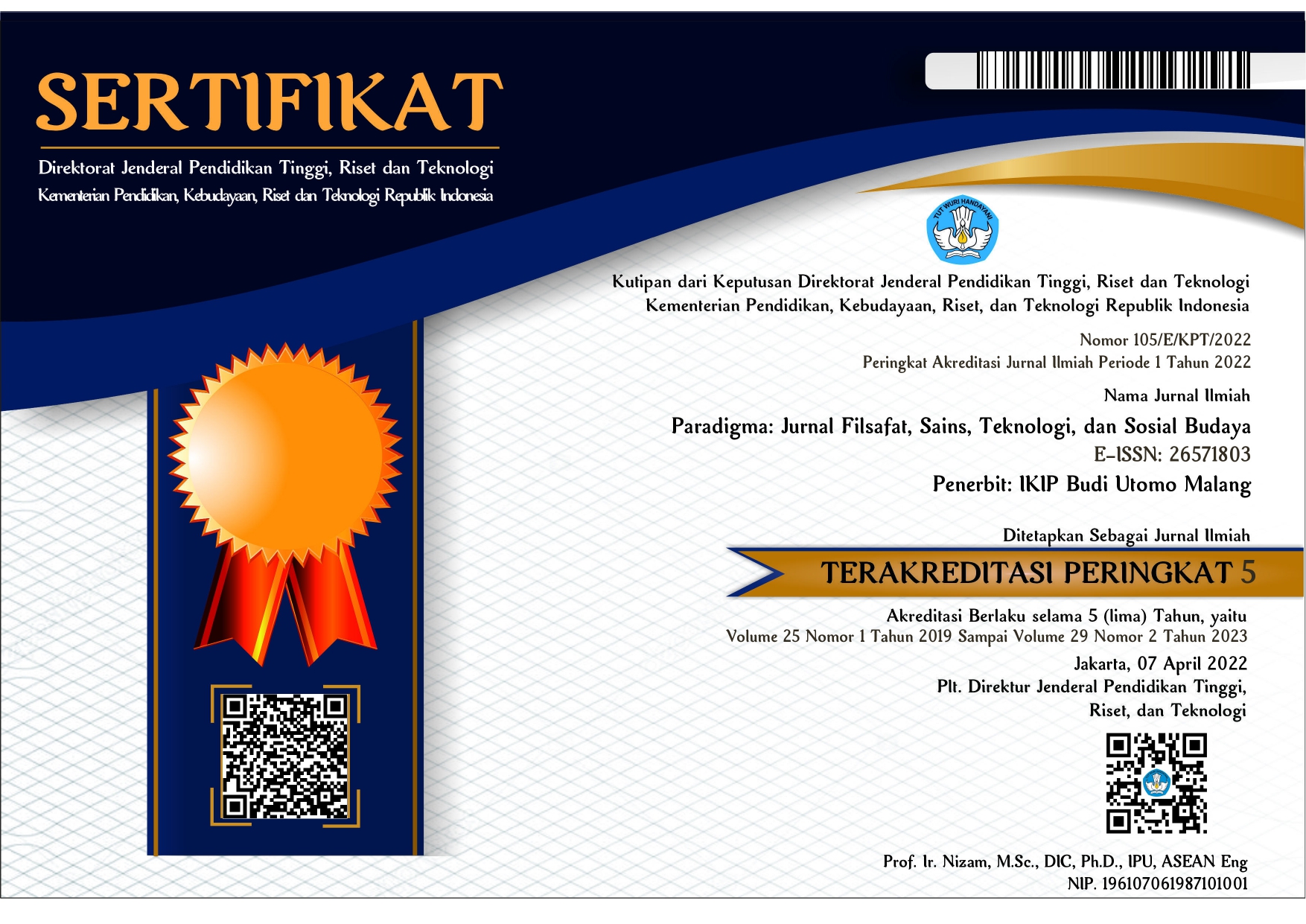Sein-Zum-Tode Menurut Martin Heidegger dalam Upacara Kematian Rambu Solo’ Masyarakat Toraja
Abstract
This study focuses on the death ceremony in Torajan culture known as Rambu Solo'. Death is an important issue throughout the history of human life, which is lived with all forms of meaning through rites in each indigenous community. Death as the limit of human existence in the world creates ambivalence in meaning. Cultural deposits present meaningful rites in human death ceremonies, including the Rambu Solo' ceremony. Martin Heidegger in his concept of Sein-Sum-Tode, Being-Towards-Death becomes an interesting foundation to see the authenticity of the Toraja people through the Rambu Solo' death ceremony. The methodology used in this writing is a qualitative method, where data is collected by reading literature related to the subject matter. The data collected will be analyzed using the concept of death according to Heidegger. The approach used is phenomenology. The author arrives at the finding that Rambu Solo' is an awareness and at the same time a form of anticipation of death. Rambu solo' becomes an authentic container of Toraja people, because the ceremony is an awareness of death, or Toraja people are aware that they are heading towards death. However, it becomes inauthentic when Toraja people are immersed in consumerism, social prestige, and forget about their mortality.








.jpg)



